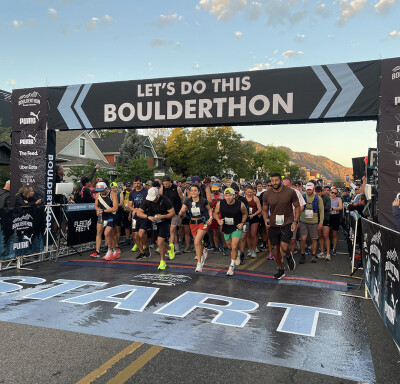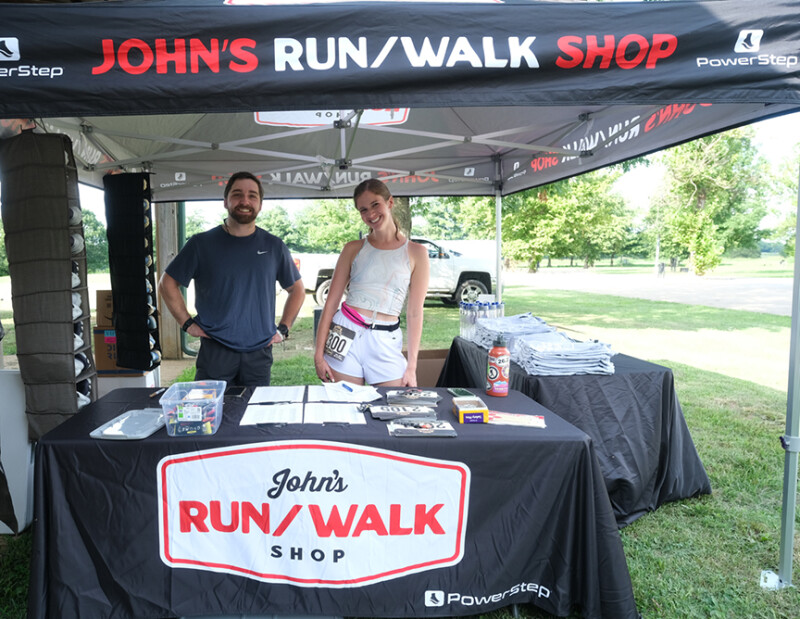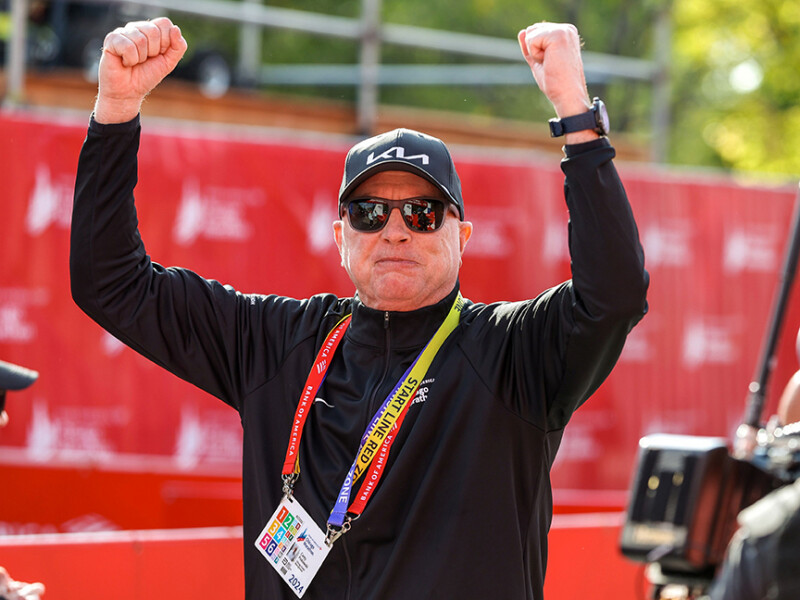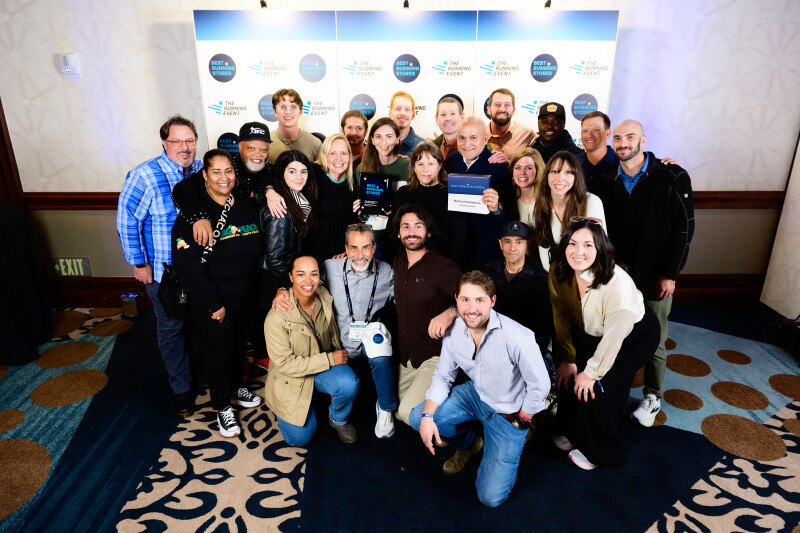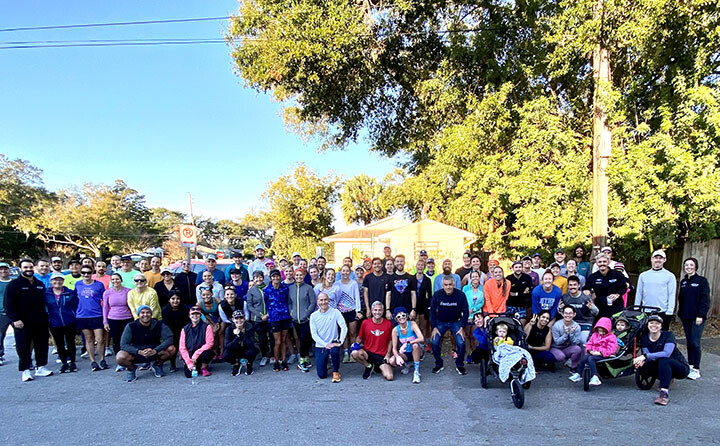W
hile race directors take the lead in the endurance event space, it takes a village to produce these events, whether they host 100 or 50,000-plus runners. This village often includes the help of other event professionals, sponsors and retailers.
In the unique space of endurance sports, it takes flexibility and collaboration to execute ever-changing business strategies for success. Race directors and their trusted partners around the world are continuing to adapt their business practices to the rapidly changing industry to keep up with the demand that attracts millions of participants.
Running Insight reached out to three industry leaders to gather their insights around the changing industry and the importance of these external relationships in order to grow their events. Here in this virtual roundtable discussion is advice from those leaders in the field.
Phil Dumontet: CEO of Brooksee, the endurance event production and service company behind the Las Vegas Marathon, Portland Marathon, Mesa Marathon, Phoenix Marathon and REVEL Race Series. Founder of Boulderthon, the city’s signature marathon series.
Mike Bone: President and CEO of Spectrum Sports Management & Timing Services, which produces notable events in California, including the Run Catalina Island race series, LA Tri series, Bike The Coast and more.
Charlie Mercer: CEO at Capstone Event Group, a sports marketing and event management company with its own portfolio of 10 events attracting 40,000 participants annually.
Running Insight: Have you experienced any noticeable shift in the business side of the endurance event industry, and if so, what is it?
Phil Dumontet: Absolutely, it’s an exciting time for the industry. We’re in what I’d call the Third Great Running Boom. The tailwinds are strong and we’re seeing both explosive interest and compelling shifts in who is participating and why. Gen Z is driving a lot of this growth, especially young women under 30. There’s also a huge increase in social and value-driven running — people are joining run clubs not just to race, but to connect, build community and live healthier, more purposeful lives. That said, costs are rising – everything from permits to production – so being strategic and efficient is more important than ever.
Mike Bone: The biggest shift we have experienced all has to do with cost and expenses. Cities, at least in Southern California, seem to have targeted events to help rebuild their revenue post-pandemic. Permits have gone up, insurance requirements have gone up and certainly safety requirements, procedures and costs have increased dramatically. In Southern California the costs of employees have skyrocketed and we have had to pivot from 1099 staff to salaried/hourly staff and the insurance and costs of such staff.
Charlie Mercer: I’ve been in the industry for 12 years and I’ve never felt this degree of optimism — between relief from finally bouncing back from COVID, the continued upward trend in participation and the fact that younger generations are turning to running as a desirable way to socialize, it’s an exciting time. There are challenges, as there always will be, but the consistent level of optimism among those in our industry feels different to me.”
What is your advice for securing sponsors/partners and how do you build that relationship for a long-term partnership?
Dumontet: Think creatively and start from an authentic place. Ask yourself: What brands do I genuinely respect and use? What values do we share Successful partnerships are built on mutual benefit. Come to the table with an idea that delivers value to both sides.
For example:
• Lululemon was a natural partner for our VIP program. Their brand aligns perfectly with the experience we offer – post-race massage, breakfast, private bathrooms – all bundled into a premium, wellness-driven experience.
• Frontier Airlines wanted to connect with runners flying into their Denver hub, so we launched the Run Clubs Fly Free initiative. We gave the top 20 run clubs in America $40K in flights — great exposure for them, a huge boost in race attendance for us and a ton of goodwill.
• Uber Eats is back for the third consecutive year as a top-tier partner and this time they’re putting the spotlight on the incredible variety of local options right here in Boulder. After a long training run, marathon, or race, who wants to cook — or even go out? It’s such a perfect partnership. This year, event director Alexa Squillaro has taken it a step further with the IRL Eats Marketplace, bringing the richness of Uber Eats’ digital platform to life at the race finish. Runners can explore a wide range of offerings from local partners — experiencing firsthand the convenience and diversity that makes Uber Eats the go-to choice.
Bone: We try to build some equity or ownership into our sponsorships. When we signed with Hi Tec for Run Catalina’s title sponsor, we rolled out the Hi Tec Triple Crown to encourage runners to sign up for and run all three Catalina Island races to earn a SWAG package and it has been tremendously successful. We spend quite a bit of time trying to learn the sponsor’s goals and objectives and how our properties, our athletes, our social media exposure can assist that sponsor. We also are diligent in our follow up and post event recaps.
Mercer: Understand the potential partner’s objectives clearly and thoroughly, then find ways to exceed expectations. Partnerships last if there is value being created for both parties.
Does your race have a relationship with a retailer? How does it benefit your overall event?
Dumontet: Yes, we have a great relationship with Fleet Feet Colorado. They’ve become a community hub where our runners can meet and connect, test the latest gear (especially from our title sponsor Puma) and hear from Olympians and elite athletes. It’s not just retail — it’s community building. And running is simply more fun when you do it with friends.
Bone: We have a few races that work with shoe retailers and on Catalina Island a few restaurants. I do believe that these retailers bring a benefit through the overall experience of going to a retailer for last-minute supplies, or a pre-race meal, discounts and just helping to overall set the ambiance of the race.
Mercer: Yes. Retailers add a lot of value to events like ours — at large events with expos as well as smaller events where we might host packet pick-up at the retail location. They offer products that runners are looking for, have knowledgeable staff who can help answer questions and sometimes partner with us on merchandise.
What are the components of a successful race-retailer partnership?
Dumontet: Consistency and community. The most successful partnerships go beyond race day. We’ve built a year-round calendar of events – panel discussions, group runs, product demos – all through Fleet Feet and local run clubs. When you activate consistently, you deepen relationships and build long-term value for both the race and the retailer.
Bone: The retailer must be willing to get involved in the database, email marketing or social media exposure. The days of just handing out postcards are over and totally ineffective. A good partnership is the race driving traffic pre- and/or post-race and the retailer helping to push signups.
Mercer: Integrating them into the points in the customer journey where they can add value and, therefore, receive value as well.
Do you have experience working with external race directors, either for your own event or partnering with an external event? What are the benefits of working with external race directors?
Dumontet: As Boulderthon continues to grow rapidly, earning its place as the number two fastest-growing races in the U.S., every element of our operations must scale and improve alongside it. Our first question was: Who can we partner with that has more experience than us, or with races even bigger than ours? In other words, who can move us closer to our goal of building a larger, world-class race? To answer that, we’ve partnered with Brian Lyons (L27 Consulting) and Michelle La Sala and Kevin Pool (Blistering Pace) as our Operations Partners. They bring a wealth of experience from major races like Chicago, New York and others. The main benefit is gaining their expertise and best practices from other communities — learning what truly works at scale.
Bone: There is tremendous value in race directors working together. This can be a strategic tie, say a Challenge medal if you complete my race and the second race, or a soft association of promoting each other’s events. I strongly believe that we work in a “rising tide floats all boats” environment and we saw that during and immediately after the pandemic. Race directors who think they somehow “own” their participants, “these are my runners, riders, triathletes,” are pretty myopic and not looking at the big picture. The truth is that the more good, solid, fun events are in the market, the more participants will sign up, start to run, ride or do a triathlon. Conversely, if the athlete has a bad experience, we may lose them and their family going forward.
What would be your main business advice for anyone entering the endurance event industry?
Dumontet: We’re all working toward the same goal — growing and strengthening the running community. Big or small, every race faces similar challenges. It’s a small, supportive world, so share best practices, ask for help and collaborate. I highly recommend the Head Start podcast — it’s a great resource packed with industry insights.
Bone: Treat this as a business, not just a passion project. Work on a budget, surround yourself with good events staff that can support you in a crisis and create a great experience. Don’t be another fly-by-night pop-up run that has a short shelf life. Build a brand around your event with a great experience that will have people returning — and make sure it is at least breaking even the first year and then building into profitability.
Mercer: Running a small business is hard. Don’t ignore the fundamentals of business management. Also, most people in our industry are really passionate about what we do and are very generous with their time and willingness to give advice. So anyone making that leap should also feel free to reach out to people for advice — you don’t need to figure everything out alone!”
If you’re interested in learning more about these leaders, their businesses and the events they produce and/or work with, you can visit the Boulderthon website at www.boulderthon.com, the Brooksee website at www.brooksee.com, the Capstone Event Group website at www.capstoneraces.com, and the Spectrum Sports Management site at www.spectrumsports.net
